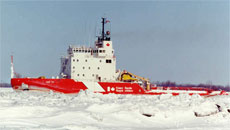TORONTO - A new study has found that children who drink non-dairy milk products such as rice, almond or soy milk may have lower levels of vitamin D in their blood than those who drink cow's milk.
Study lead Dr. Jonathon Maguire says researchers found that kids who drank only non-dairy milk were more than twice as likely to be vitamin D-deficient as children who drank only cow's milk.
Maguire, a pediatrician and researcher at St. Michael's Hospital in Toronto, says that among children who drank non-cow's milk, every additional cup of a non-dairy milk was associated with a five per cent drop in vitamin D levels per month.
Vitamin D — the sunshine vitamin — is found in fortified cow's milk, fish and some other foods, and plays a critical role in bone development. Low levels of vitamin D can cause bone weakness and, in severe cases, potentially bone-deforming rickets.
In North America, every 100 millilitres of cow's milk must be fortified with 40 international units of vitamin D. Adding vitamin D to non-dairy milks is voluntary, but many commercial plant-based milk products are fortified.
The study published Monday in the Canadian Medical Association Journal says non-cow's milk is becoming increasingly popular because of perceived health benefits, milk allergies or lactose intolerance.
"It is difficult for consumers to tell how much vitamin D is in non-cow's milk," said Dr. Maguire. "Caregivers need to be aware of the amount of vitamin D, calcium and other nutrients in alternative milk beverages so they can make informed choices for their children."
The study of more than 3,800 children aged one to six found 87 per cent drank predominantly cow's milk, while 13 per cent drank non-cow's milk.





